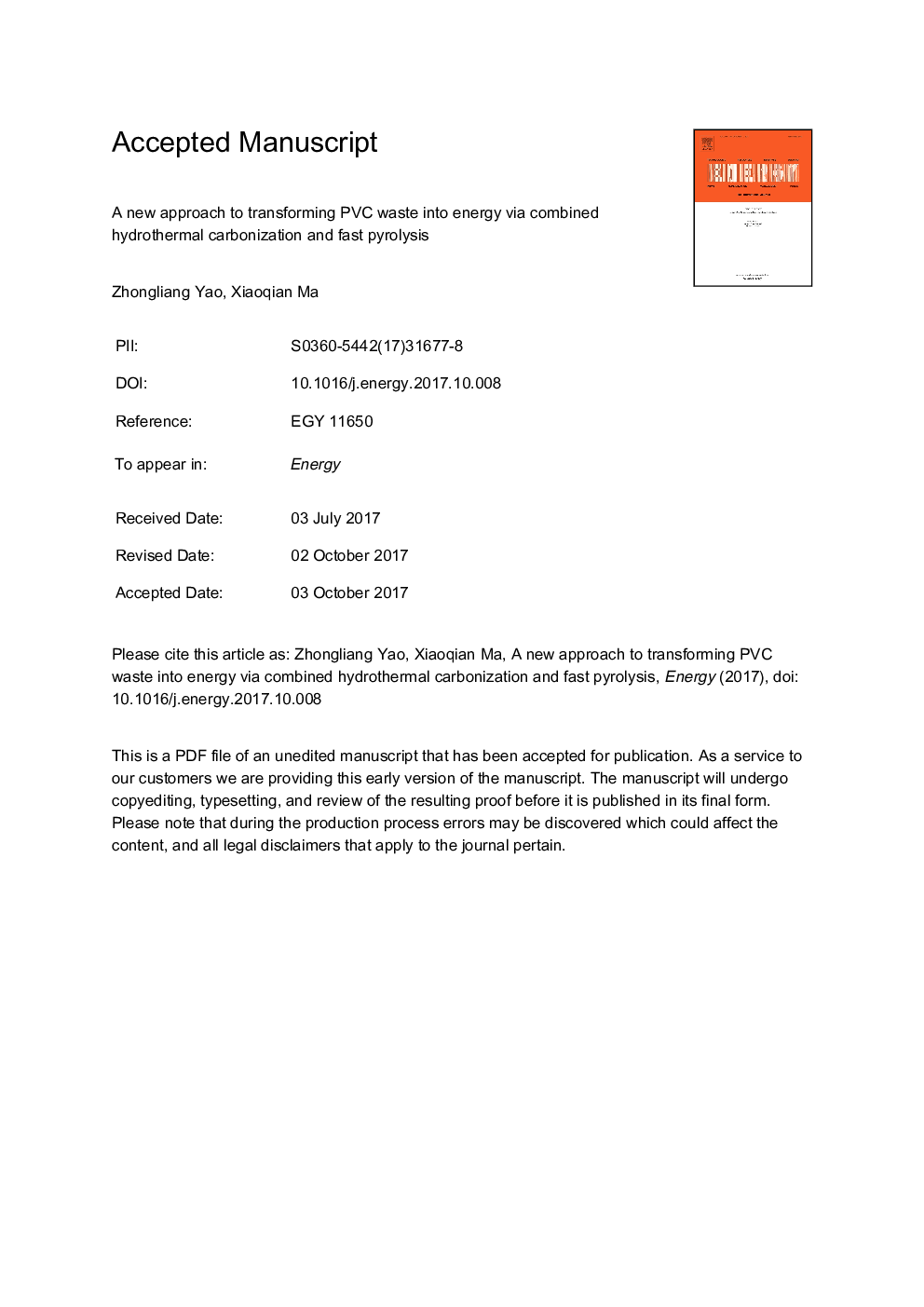| Article ID | Journal | Published Year | Pages | File Type |
|---|---|---|---|---|
| 8072710 | Energy | 2017 | 34 Pages |
Abstract
The hydrothermal carbonization (HTC) of poly (vinyl chloride) (PVC) was studied. The results showed that the HTC temperature could significantly accelerate the HTC dechlorination of PVC at a relative mild condition. The carbon content of solid product (hydrochar) treated at 260 °C was 82%, which was similar to sub-bituminous coal. According to the FTIR and 13C NMR spectrum, elimination, substitution, aromatization and polymerization occurred during the HTC. With the temperature increasing, the degree of aromatization was deeper. The SEM analysis showed the surface morphology of hydrochar much differed from that of raw sample. Hydrochar treated at 200 °C had pore structure, while the structure of hydrochar treated at 230 and 260 °C was partially destructed. The Py-GC/MS analysis showed that evolved products of hydrochars treated at 200 and 230 °C was HCl, alicyclic & aliphatic hydrocarbons, benzene, toluene, naphthalene, diphenyl and phenanthrene. While evolved products of hydrochars treated at 260 °C contains large amount of alicyclic & aliphatic hydrocarbons. Py-GC/MS analysis also showed as the pyrolysis temperature increased from 500 to 900 °C, the content of aromatic hydrocarbons increased. The relative peak area of alicyclic & aliphatic hydrocarbons was largest at 600 °C.
Related Topics
Physical Sciences and Engineering
Energy
Energy (General)
Authors
Zhongliang Yao, Xiaoqian Ma,
